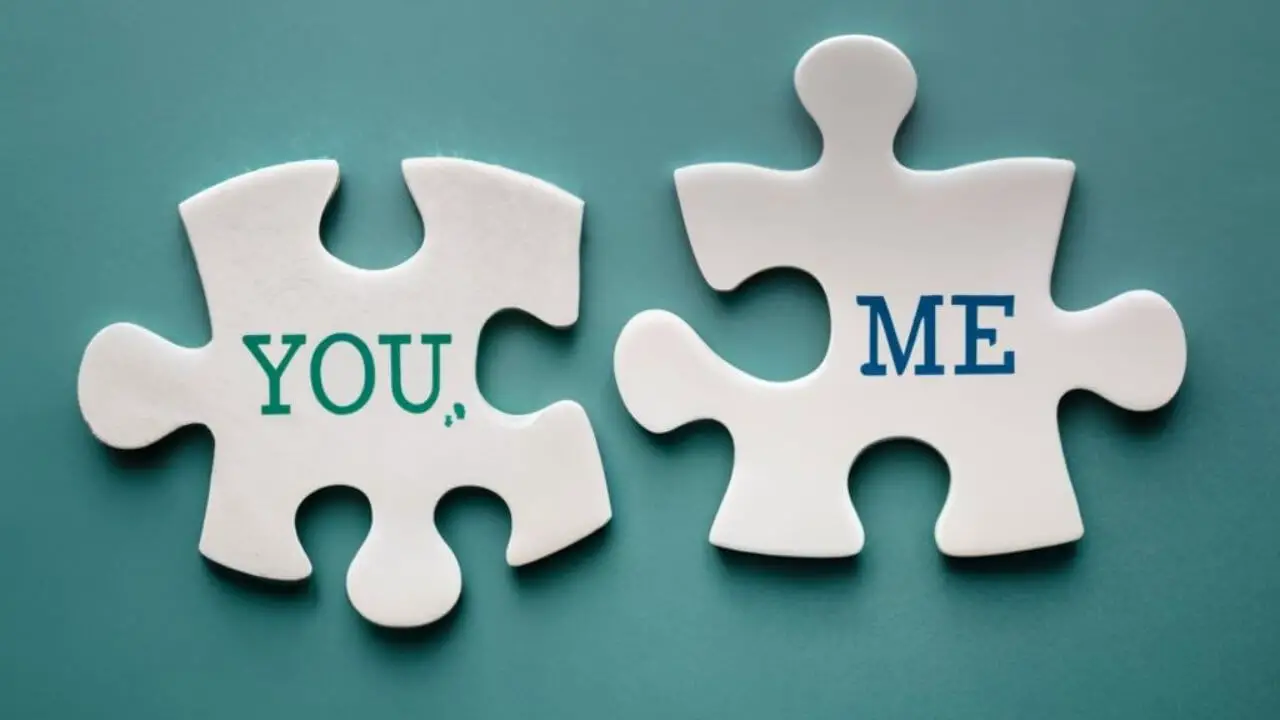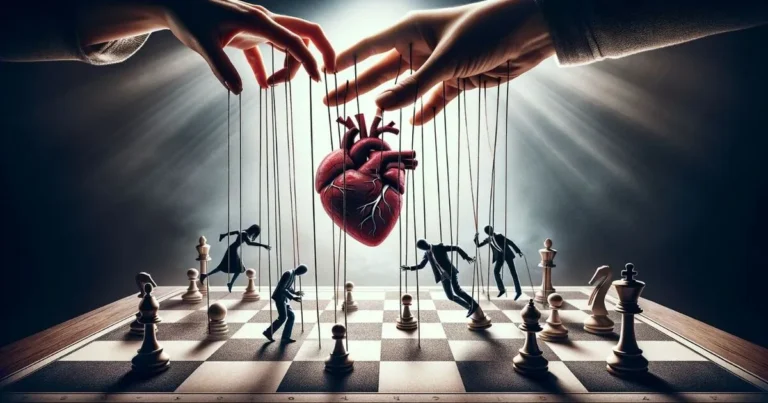Disagreements in a Relationship: Master the Art of Agreeing to Disagree in Love!

Ever felt like you were speaking a different language than your partner during an argument? You’re not alone.” When it comes to disagreements in a relationship, it often feels like you’re stuck in an endless loop of misunderstanding. Yet, what if I told you that conflict is not the enemy?
Resolving conflict can become an opportunity to strengthen your bond, rather than break it. The truth is, every relationship has its moments of friction, and it’s not a one-partner show; it takes two to tango—and to untangle the complex web of emotions and thoughts that fuel the disagreement.
Curious about how you can turn your next argument into a stepping stone for your relationship? Stick around; we have some real gems to share.
So, ready to navigate the ins and outs of relationship conflict with poise and confidence? Let’s embark on this enlightening journey together.
Conflict Resolution: How to Stay Calm and Respectful
Agreeing to disagree is a principle, but finding common ground is an art,” as a wise person once said. Believe it or not, the way you handle conflict in your relationship can either build a sturdy bridge or dig an impassable canyon between you and your partner. Interested in fostering healthy relationships? Let’s delve into the fine art of conflict discussion, shall we?
The Importance of Listening
First things first: listening. You might think you’re doing it, but are you listening to your partner? During a heated argument, it’s easy to think about what you’re going to say next rather than tuning into your partner’s words.
To cultivate a healthy relationship, it’s crucial to hone your listening skills. Remember, listening doesn’t mean you have to agree; it means you respect your partner enough to hear them out.
Fight Constructively, Not Destructively
Fights are inevitable, but do you know how to fight with your partner in a way that doesn’t leave you both emotionally bruised? Aim for a constructive way to deal with conflict. This is not a courtroom drama; you’re not trying to win. Instead, the goal is mutual understanding.
Establishing ground rules can help you maintain a respectful atmosphere. For example:
The Agreeing to Disagree Approach
Let’s be realistic; you’re not going to see eye-to-eye on every issue. Sometimes it’s best to “agree to disagree.” This doesn’t mean you’re ignoring the problem; it means you’re acknowledging that each of you has a unique perspective worth respecting.
And hey, that difference in viewpoint is probably one of the things that attracted you to each other in the first place!
Your Guide to a Healthy Conflict Discussion
So, ponder this for a moment: Could your next argument bring you closer together? The ball’s in your court; what you do next can set the tone for many conversations to come.
Relationship Conflict: How to Avoid Name-Calling and Put-Downs
You don’t have to attend every argument you’re invited to, quipped an insightful individual. The heat of the moment can lead to regrettable words, and in a relationship conflict, it’s easy for tempers to flare and for things to get, well, ugly.
How do you avoid sinking into the pitfall of name-calling and put-downs? How can you navigate the complexities in a way that allows you and your partner to understand each other better? Let’s explore.
Words Are Not Just Words
Ever heard the phrase “Sticks and stones may break my bones, but words will never hurt me”? Yeah, not true. What your partner says in the heat of a disagreement can leave a lasting impression. Conversely, it’s crucial to be aware of the potential damage our own words can inflict when one partner is upset.
Hold the Blame Game
If you feel like your partner is responsible for all the problems in your relationship, it’s tempting to lay the blame solely on them. But beware, blame can act like a volatile accelerant in any relationship conflict. Yes, differences of opinion and individual quirks can cause many problems, but blaming each other seldom brings resolution and only escalates the issue at hand.
Realize It’s a Two-Way Street
Your partner’s not the only one in the room. Both parties contribute to the overall conflict in a relationship. Therefore, if your partner is upset, it’s essential to look at the way you and your partner are interacting. Is your communication contributing to understanding or misunderstanding? The way you handle disagreements could be a part of the problem or the solution.
Your Guide to Keeping It Respectful
Navigating relationship conflict is not about dodging disagreements or even solving all the problems. It’s about fostering a respectful environment where both partners feel heard and valued. And who knows, tackling these challenges together might just bring you closer than you ever imagined.
Resolve Conflict: How to Find Common Ground
“Meeting in the middle does not mean meeting in the mud,” a mentor of mine once said. In the theater of relationships, disagreements are inevitable curtain-raisers, but they don’t have to be the showstoppers.
And let’s face it—managing conflict well is the hallmark of a successful relationship. So, how can we navigate conflict to find that elusive common ground? Let’s dive in.
It Takes Two to Make a Thing Go Right
Creating a solution that works for both parties requires a commitment from—you guessed it—both parties. It’s not about who makes the coffee; it’s about who is willing to share the cup.
To make your partner feel included in the process, encourage open discussion and value their input. This isn’t a tug-of-war; it’s more like a dance, where both need to move in sync to create harmony.
The Three “C”s: Communication, Compromise, and Commitment
The Role of Empathy
Empathy is like a magical elixir in the realm of conflict resolution. It helps us step into the other person’s shoes, even if for just a moment. This broader perspective can often illuminate a path to common ground.
Practical Tips for Finding Common Ground
Navigating the minefield of disagreements in relationships is no small feat. However, the rewards are well worth the effort.
The trials you face and overcome together not only make your relationship stronger but also deepen your understanding of each other. After all, a relationship without conflict is like a sea without waves—serene, perhaps, but also static.
Conclusion: Turning Conflict into Opportunities for Connection
Life happens, and with it comes conflict in relationships. But as we’ve seen, conflict is not a curse to avoid but a chance to deepen your connection with your partner.
From staying calm to avoiding derogatory language, from finding common ground to understanding each other better—the road to managing conflict in a healthy way is paved with mindful actions.
At the end of the day, if you’re struggling to navigate the rocky terrains of your relationship and conventional wisdom isn’t quite cutting it, couples therapy can be a lifesaver.
Sometimes, an experienced, neutral third party can help guide you toward clarity and mutual understanding.
Your Next Step, In Managing Disagreements in a Relationship…
If you’re ready to face and conquer the challenges in your relationship, consider working with Coach Vishnu Ra in couples therapy. He offers actionable insights and effective techniques to help you navigate the complexities of love, commitment, and everything in between.
Don’t let conflict be the boulder in your path; let it be the bridge that brings you closer together. Are you ready to take that first step toward a more fulfilling, harmonious relationship?
So, what are you waiting for? Take the plunge and transform the way you manage conflict today!










